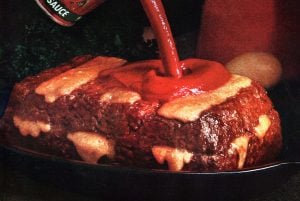Why is BankAmericard changing its name? Because of you. (1977)
Time magazine ad – June 13, 1977
You’ve been changing. You’re doing more. Eating out more. Traveling more.
And when you find a good buy or a one-of-a-kind, you want to be able to get it. Whether you’re just downtown or halfway around the globe…
That card is Visa. The new name for BankAmericard. As good as BankAmericard is, Visa will be even better.
Visa will be the biggest shopping and travel card, honored and recognized in over 110 countries around the world by one name and one familiar design.
Visa – We’re keeping up with you

Visa passport to bank windfall (1976)
By Kathy McKinney – The Pantagraph (Bloomington, Illinois) December 16, 1976
McLean County Bank had an idea that turned out to be worth more than $8 million.
The bank in 1972 began a program called VISA — Vacation Inspired Savings Account. The name was patented in 1974 at a cost of $300.
In early 1976, BankAmericard decided it wanted to change its name to VISA. The McLean County Bank patent was the only thing in the whole world standing in the way.
As a result, the bank has received, through an agreement worked out with the credit card company, “several times $300 for the name,” bank President Robert James said Wednesday.
ALSO SEE: Vintage payphones: When phone booths, walk-up & drive-up public telephones were everywhere

Part of the agreement, James said, is inclusion of the bank in an $8.15 million advertising program BankAmericard has scheduled for next year.
“When they start spending that $8 million, we will get some national coverage about where they got the name,” the bank president said.
James said he got a telephone call last spring from a man in San Francisco, Calif., who identified himself as a senior vice president of National BankAmericard.
Bennett Katz told James he would like to fly to Bloomington and have a talk with him.
“We are what they call a ‘B’ bank with BankAmericard, which designates what services we can offer with the company,” James said. “There is another bank in the city that also is a ‘B’ bank, and they had the designation first.
“I had illusions the man was coming in to tell us our franchise was going to be canceled. I thought, ‘Well, we’ve had it.'”
The next day Katz called back. He said another senior vice president was on the east coast, and would like to charter a plane and attend the meeting.
“I said, ‘Wait a minute, now. One senior vice president flying in from the west coast, another chartering a plane to fly from the east coast. What are we going to talk about here?”‘
Katz explained the situation to him. BANCO Ltd., the international arm of BankAmericard, wanted to get into the European market with credit cards. It researched a number of names, and decided VISA would be the most successful internationally.

IBANCO looked all over Europe for conflicts on the name and found none, James said. Then IBANCO officials came back to the United States and found “a little country bank in Bloomington, Ill., already had the trademark registered.”
The negotiations over the sale of the name took several months, the bank president said. In the end, the McLean County Bank retained the name to use in the way it has been using it.
IBANCO is paying for the name, will include the McLean County Bank in its advertising campaign, and will repay the bank for “every cent of advertising spent since the name went into use — back to 1972.”
National BankAmericard will begin conversion of its name in January. The change will be effective in March. The company expects to take about three years to complete the conversion.
“We think of the name more as meaning ‘Vacation Inspired Savings Account,'” James said. “That was the way we came up with the name.”
He said when he had the idea of the program of a savings account to be used for a vacation, he threw it out to employees of the bank for a name.
Names were narrowed to about six, and James Allen Advertising Associates took it from there. VISA was the name decided upon. James cannot remember who offered VISA as a name.
BankAmericard, James said, decided on the name because of its almost universal meaning as a travel document. The company had decided the name BankAmericard would not be well accepted in Europe because of the ‘America’ in it.
James said he can foresee no confusion over both the McLean County Bank and BankAmericard using the same name. “As a matter of fact, we have something no other bank in the world can have.
“Some of these days,” he said, smiling, “a person may be able to charge their VISA trip to a VISA card. We will be the only institution that will have the right to use VISA except IBANCO.”
It goes to show you, he added, if you have a good idea — patent [trademark] it.

NOW SEE THIS: Digital watches: The hot tech trend of the ’70s & ’80s




















One Response
The name of the man who originally offered the name VISA /Vacation inspired savings account, is a Mr. Edward Baird from Illinois.
He is long retired from advertising, and enjoys traveling the country. I met him in Joplin Missouri this morning.